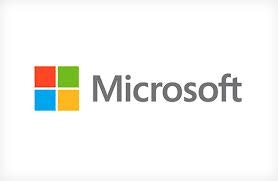While the Windows operating system is an important part of Microsoft Corporation (NASDAQ:MSFT)’s business, its Office suite of productivity products is actually the company’s largest cash cow. In fiscal 2013 Microsoft Corporation (NASDAQ:MSFT) derived $16 billion in operating income from the division comprised mainly of Office, with a fantastic 65% operating margin to boot.
For many years Microsoft Office faced little real competition, but today the story has changed. Office not only faces competition from a slew of free applications, but also from search giant Google Inc (NASDAQ:GOOG). Can Office maintain its dominance in the face of this competition? Or will Microsoft Corporation (NASDAQ:MSFT)’s cash cow be put out to pasture?
The dominance of Office
For a long time there really was no other choice than Microsoft Office. Then came OpenOffice and other open-source alternatives, offering a free office suite for those fed up with Microsoft. It would seem that a free alternative would be death knell for Microsoft Office, but it wasn’t. There are two reasons for this.
1. Most of Microsoft Corporation (NASDAQ:MSFT)’s Office revenue comes from the enterprise. According to the 2012 annual report, about 80% of the business division’s revenue comes from sales to businesses, making enterprise dominance far more important than consumer dominance. While the free office suites are popular for home users, Microsoft Corporation (NASDAQ:MSFT) has maintained a stranglehold on the enterprise market, with around a 90% market share on PCs. Given the dominance of Windows on enterprise PCs this makes sense, and with long-term contracts and the reluctance of IT departments to switch companies for something as important as productivity software Microsoft Corporation (NASDAQ:MSFT) was able to own the enterprise market even against low-cost competition.
2. Microsoft Office is simply better than the free alternatives. OpenOffice is basic, and while this is likely fine for the home user it’s not enough for someone trying to create a complex document. In terms of features, Microsoft Office is the clear winner and with enterprise users already familiar and comfortable with the software it makes little sense to switch to a less functional alternative.
Introducing the cloud
As applications have shifted into the cloud so have productivity suites, and Google Inc (NASDAQ:GOOG) created Google Docs to directly take advantage of this trend. Google Docs offers Office alternatives directly in the browser, and documents can be stored in Google’s cloud storage system and shared with other users. Like the free office suites before it Google Docs is popular among home users but has yet to make substantial progress in the enterprise.






